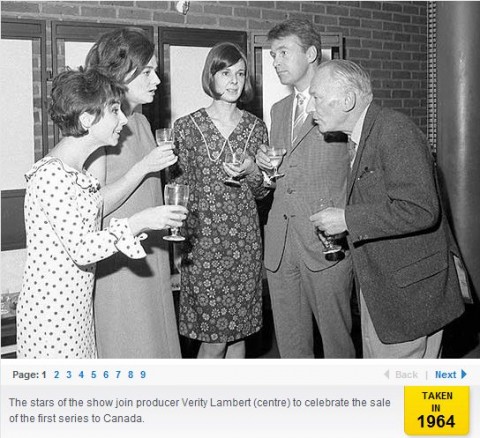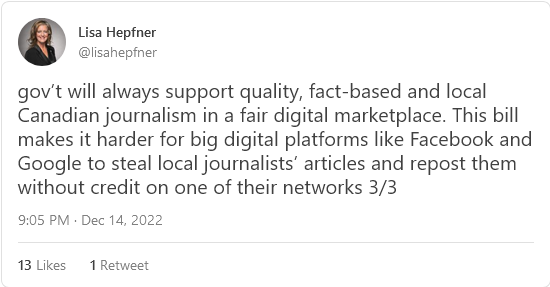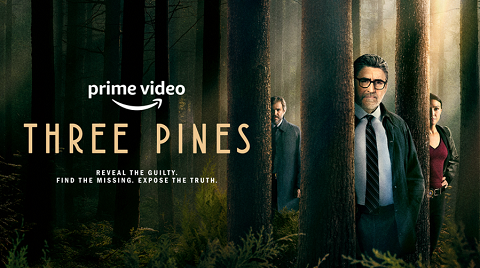Johnny Carson
Published 18 Nov 2022Original Airdate: 01/23/1974
(more…)
March 12, 2023
Jack Benny and Mel Blanc – The Man of a Thousand Voices | Carson Tonight Show
February 23, 2023
Doctor Who – long-term sleeper agent for the WHO?
I haven’t followed the TV series for a very long time (“my” Doctor was William Hartnell, then Patrick Troughton and by the time I watched another episode there’d been two more Doctors), but I still have fond memories of the show. Along comes Caroline Kaye to suggest that I was an unwitting victim of globalist propaganda:
The BBC science fiction television series Doctor Who has been a part of British popular culture since 1963. It is centred on the Doctor figure, a scientist who works to save civilisations, help people in need and to prevent evil forces from harming people. Remember that description.
A Doctor Who fanatic once told me that the “Who” of the Doctor’s name obliquely refers to the other WHO, the World Health Organisation. There appears to be something in this, however implausible. I find the strange coincidences between fiction and reality curious and uncanny.
The Doctor is a scientific adviser to the organisation UNIT, standing for United Nations Intelligence Unit, which happens to be based in Geneva, home of the WHO. UNIT has its military element in the form of “the brigadier” who liaises with the government and occasionally has to reach out to Geneva to “gain authority” when government does not co-operate.
The most famous Doctor Who monsters will always be the Daleks. In the story Genesis of the Daleks (1975), the Doctor’s nemesis is Davros, the creator of the Daleks. Davros sounds rather like Davos, the home of the World Economic Forum, the WEF.
In the story, the Doctor is tasked with preventing the creation of the Daleks and faces a moral dilemma when confronted with the means to destroy them. He ponders in a renowned scene, “Have I the right [to destroy them]?” Declining to destroy the Daleks, the Doctor escapes, and the Daleks continue on their path of evil.
Doctor Who‘s other famous monsters, the Cybermen, are cyborgs – amoral, unfeeling transhuman creatures of our nightmares; surely the creations of mad or evil persons. Yet the idea of cyborgs and transhumanism is being pushed enthusiastically by the WEF, inspired by the ideas of Yuval Noah Harari who sees human beings merely as “hackable animals” to be augmented as necessary.
The WHO acronym is the emblem of an organisation supposedly formed, like the Doctor, to help people and protect them. Instead, in the last three years we have seen, at the behest of the WHO, the poorest and weakest of the world economically hammered, a swathe of unnecessary deaths from a treatable coronavirus, worldwide harms and deaths through forced vaccination, all of which break every human right established in the wake of WWII. This is outlined in devastating detail by Toby Green and Thomas Fazi in their book, The Covid Consensus: The Global Assault on Democracy and the Poor – A Critique from the Left.
Now the WHO is preparing a new treaty which ultimately will result in signing member states becoming legally subordinate to the WHO. It is designed to subsume us all into a malleable collective. In other words, as per the sprawling EU project, our politicians will be able to blame the WHO for mandating medical treatments, lockdowns and prevention of travel, all of which could happen at the whim of the director general. Or more likely, its biggest, unelected, non-medically trained funder Bill Gates.
February 5, 2023
February 3, 2023
January 23, 2023
Five Dumb Canadian Cartoons
J.J. McCullough
Published 11 Nov 20175 dumb cartoons from Canada I remember from my childhood.
January 12, 2023
QotD: Describing the CBC to Americans
an audience of any size has yet to be found
So far so CBC, then.
I’m not sure how to describe the CBC to American viewers. The BBC routinely produces content that’s quite entertaining (deliberately, I mean) so it’s not a good analogy. I suppose the best analog would be if NPR and PBS merged and were run by the CPUSA with $20 billion dollars of taxpayer money, and still managed to produce nothing anyone wanted to watch.
Daniel Ream, commenting on David Thompson, “The Giant Testicles Told Me”, DavidThompson, 2022-10-10.
December 24, 2022
Repost – The Monkees – “Riu Chiu”
Uploaded on 15 Dec 2015
The Monkees perform “Riu Chiu” from Episode 47, “The Monkees’ Christmas Show”.
H/T to the late Kathy Shaidle for the link.
December 22, 2022
The Emulsified High-Fat Offal Tube | Yes, Minister: 1984 Christmas Special | BBC Comedy Greats
BBC Comedy Greats
Published 26 Jul 2021Bernard (Derek Fowlds) walks Jim Hacker (Paul Eddington) through the red-tape of signing his Christmas cards, but Jim Hacker is more concerned with worrying plans from Brussels to rename the British sausage.
(more…)
December 17, 2022
Canada’s consciously anemic foreign and military policies
In The Line, Matt Gurney explains why Canada consistently fails to “punch above their weight” in foreign and military matters and that it’s not at all accidental:
Canadian politicians have an inputs problem. Maybe that’s actually the wrong way to describe it — the problem is with the outputs. But it’s the inputs they love talking about.
If that all sounds a little vague, maybe this sounds familiar: “Hey there, citizen. Alarmed about Troubling Issue X? Well, don’t worry. We’re pledging $300 million over the next six years to Troubling Issue X. Oh, and Annoying Irritant Y? We’re announcing a task force to report back on that.”
Does Troubling Issue X get solved? Does Annoying Irritant Y get less annoying and irritating? Eh. We probably don’t collect enough stats to even know. The purpose of the announcement isn’t to solve the problem. It’s to announce something and hope people stop paying attention.
Canadian politicians — especially the current federal government — are notorious for announcing the same “new thing” in as many ways and in as many different contexts as they can. They get several hundred dollars of positive press coverage for every actual dollar spent on whatever the announced spending is supposed to be devoted toward. If they can recycle announcements from months past into a new set of announcements, you’re pretty much guaranteed they’ll do it. Announcing spending is, one must assume, what gets people to cast their votes for the party announcing the spending.
A lot of what looks like policy failure in Canadian foreign and military affairs only looks like a failure when you forget that accomplishing something wasn’t the point. Being photographed and videotaped saying you’ll accomplish something was the point. And the announcement itself accomplishes that!
This was true even before the Trudeau government started handing out bushel baskets of money to various Canadian newspapers, TV networks, magazines, and other legacy media entities. What was once merely praise is now bought sychophancy from the (literally) paid media.
On the military side of things, the Canadian Armed Forces are an organization the government grudgingly funds, but only enough to look good for the self-same media:
It’s not that Canada accomplishes nothing on the world stage. We accomplish things. Sometimes we even play an outsized role — Canada did, for instance, perform well and above expectations in Kandahar. The odd exception aside, though, when it comes to foreign policy generally and especially with defence policy, successive Canadian governments have set a very clear target: we will do, technically, more than nothing. We won’t often do much more than that. But we’ll do enough to not get kicked out of the club of allied nations.
Why do we want to be in the club? Not because we feel any sense of duty or obligation to lead and take on any real burden. But because being in the club makes us safer, and it would, after all, be embarrassing to get kicked out.
It’s important to remember that Canada is, by any standard, a rich country. We could be an actual force for good and stability on the world stage if we wanted to. We could build a bigger fleet and patrol more places, more often — we’d be welcome! We could have a bigger army and lead more peacekeeping missions, or contribute more to NATO. A bigger air force, likewise, could contribute more to our allies, especially in Europe in these unsettled times. In a parallel universe where we did these things, we’d then be able to say with a straight face that the purpose of Canada’s navy was contributing to the safety and security of the seas, the purpose of our army was to assist allies and provide peacekeepers to help end international crises, and the purpose of our air force was to project power and bring support to threatened allies.
In the world we actually live in, though, the purpose of the navy is to technically have a navy that technically does things, the purpose of the army is to technically have an army that technically does things, and the purpose of the air force … you see where this is going, right?
Our navy does things! It shows up places, and patrols areas. But only as much as necessary to technically tick that box. The army is in much the same condition; with a growing number of domestic commitments sapping its strength and budget, even its ability to assist with disasters at home is largely maxed out, but we send a few hundred soldiers here and there, thereby allowing ourselves to proclaim that we’ve … sent soldiers somewhere. The air force, as was just reported this week, can’t even really do even that much this year. The exhausted force is skipping the very modest — a half-dozen fighter jets — annual mission to Europe. The air force is just too burnt out to sustain even that tiny mission.
This is a big and growing problem. Canada, again, is rich enough to make a difference in global security affairs, if we chose to make different choices with how we spend our money. We have made the opposite choice. We field just enough of a military to be able to make just enough difference to avoid being accused of being total deadbeats, and no more.
Can it fight? Eh, maybe a bit. Can it make a difference? Depends how you define “difference”, I guess. Does it make the world and our allies safer? In a way? Can it keep Canadians safe at home? Sort of.
This isn’t a failure of our policy. This is our policy. We show up with as little as possible for as brief a time as possible, but gosh, do we ever talk about the showing up.
December 16, 2022
The Online News [Shakedown] Act passes the House of Commons
Michael Geist summarizes the farcical progress of Justin Trudeau’s legalized theft from the “tech giants”:
Later today, the House of Commons will vote to approve Bill C-18, the Online News Act, sending it to the Senate just prior to breaking for the holidays. While Canadian Heritage Minister Pablo Rodriguez and media lobbyists will no doubt celebrate the milestone, it should not go unremarked that the legislative process for this bill has been an utter embarrassment with an already bad bill made far worse. The government cut off debate at second reading, actively excluded dozens of potential witnesses, expanded the bill to hundreds of broadcasters that may not even produce news, denigrated online news services as “not real news”, and shrugged off violations of international copyright law. All the while, it acknowledged that mandated payments for links are the foundation of the bill with officials stating that individual Facebook posts accompanied by a link to a news story would be caught by the law. As for the purported financial benefits, the government’s own estimates are less than half those of the Parliamentary Budget Officer, who also concluded that more than 75% of the revenues will go to broadcasters such as Bell, Rogers, and the CBC. The end result is a bill that will undermine competition and pose a threat to freedom of expression, while potentially leading Facebook to block news sharing in Canada and Google to cancel dozens of existing agreements with Canadian news outlets.
As I’ve chronicled for months, Bill C-18 is the product of an intense lobbying campaign from some of Canada’s largest media companies. While the Globe and Mail broke from the pack at the last minute, years of one-sided editorials — even devoting full front pages to the issue — had its effect. Indeed, Canadian newspapers would be exhibit #1 for how government intervention in the media space has a direct impact on an independent press. From the moment of its introduction, the consequences were immediately obvious as payments for links serves as the foundation for a law that treats “facilitating access to news” as compensable. Canadians can be forgiven for thinking the bill is about compensating for reproduction of news stories. It is not, since the platforms don’t do that. Instead, it is about requiring payments for links, indexing or otherwise directing traffic to the news organizations who are often the source of the link itself. In most circumstances, recipients pay for the benefits that come from referral traffic. With Bill C-18, the entities providing the referrals pay for doing so.
Further, the bill is about far more than struggling Canadian newspapers as it expands eligibility into broadcasters such as the CBC, foreign news outlets such as the New York Times, and hundreds of broadcasters licensed by the CRTC that are not even required to produce news. The end goal is negotiated payments for links, backed by the threat of a one-sided arbitration process overseen by the CRTC in which the arbitration panel can simply reject offers if it believes it fails to meet the government’s policy objectives. That isn’t a commercial deal, it is a shakedown.
I’ve been operating on the assumption that the government is betting that the big internet companies won’t do the obvious and ban linking to any Canadian media outlet on their respective platforms, but the feds don’t have a great track record of predictions in recent years …
In a later post, Michael Geist illustrated the literal misinformation that was pushed by government MPs during Bill C-18’s path through to final reading by quoting some of Liberal MP Lisa Hepfner’s contributions:
Last month, Liberal MP Lisa Hepfner shocked Canadian online news outlets by stating that “they’re not news. They’re not gathering news. They’re publishing opinion only.” The comments sparked instant criticism from news outlets across the country, leading Hepfner to issue a quick apology. In the aftermath of the comments, Hepfner said nothing for weeks at Heritage committee studying Bill C-18. That bill passed third reading yesterday – I posted on the embarrassing legislative review – and Hepfner was back at it. Rather than criticizing online news outlets, this time she targeted the Internet platforms, saying the bill would make it “harder for big digital platforms like Facebook and Google to steal local journalists’ articles and repost them without credit.”
[…]
Hepfner’s comment not only provide a troubling example of an MP engaging in misinformation about links who has effectively labelled her own Facebook posts as theft, but strikes at the heart of the problem with Bill C-18. As government officials have acknowledged, the entire foundation of the bill is based on paying for links. In fact, when a proposal to remove links from the bill was raised at committee, government MPs described the change as a loophole and voted against it. In the case of the CBC links, the government confirmed that Hepfner could write about the availability of children’s medications (ie. “Great news! CBC reports a million bottles of pain medication are on the way”) but once she added a link to provide a source for the claim, Bill C-18 is triggered.
These examples highlight the absurdity of a law that treats links as compensable and MPs who equate those links to theft. To be clear, there is nothing wrong with Hepfner or anyone else providing a link to a story on greater availability of children’s medicine. In fact, the CBC story has effectively already been paid for by the public and should be shared widely without the government creating barriers to sharing that information. What is wrong that is ill-informed MPs have voted for Bill C-18, creating a framework in which the government is imposing a mandatory payment scheme for some platforms for hosting links. The bill is now headed to the Senate which will hopefully make the necessary amendments to set Hepfner’s mind at ease that her own Facebook posts do not make her an accomplice to theft.
December 8, 2022
QotD: Politicians’ public displays of sorrow
… our own politicians are increasingly given to hyperbole over the emotional impact upon them of accidents or disasters. They think that extravagant displays of emotion are required of them, and perhaps they are right. Any leader who doesn’t rush immediately to the scene of a disaster and utter heartfelt platitudes is regarded as a monster of coldheartedness who will lose the next election. We have forgotten that empty vessels make the most noise and demand not so much our pound of flesh as our flow of tears and outpouring of cliché.
Theodore Dalrymple, “Tears of a Tyrant”, Taki’s Magazine, 2018-04-28.
December 7, 2022
The media: they hate you, they really hate you
In a follow-up to yesterday’s post at Thank You Truckers!, Donna Laframboise provides more details on one of the individual cases highlighted by Douglas Murray in the Munk Debates last week:
Collectively, those examples demonstrate three things: Egregious journalistic bias. A frightening inability to empathize with the working class. And a bizarre eagerness to slander and dismiss fellow human beings.
Because the examples cited by Murray are vile, I didn’t amplify them. But those of you who watched the three-minute clip heard about them. On further reflection, therefore, I’m going to highlight one of them. Simply to make the point that Murray wasn’t exaggerating. When he used the words rancid and corrupt to describe our current media environment, he was wholly on target. Here’s a small portion of Murray’s remarks, including some third party profanity:
You had a Toronto Star columnist saying, quote (sorry for the language), it’s a homegrown hate farm that was then jet-fuelled by an American right-funded rat-fucking operation …
Yup, that was a real tweet from Bruce Arthur, who earns his living as a sports writer, currently for the Toronto Star. Below is his full reply to comments made by another Canadian journalist, Jeet Heer, who writes for The Nation, a far-left US publication:
I worked with both these gentlemen 20 years ago, in the earliest days of the National Post. It was a large newsroom. I didn’t get to know either of them.
The day after they catapulted these deluded, venomous tweets into the world, I arrived in Ottawa. I spent a week there, taking photos and actually talking to people. The Freedom Convoy protesters I met were supremely decent human beings. Since then, I’ve formally interviewed many of them. I’ve learned about their lives, their triumphs, their troubles, their sorrow.
My conclusion? If I were stranded on a desert island — or if a nuclear bomb detonated anywhere near me — I’d be sticking close to folks like these. People who know how to fix things, how to build things, and how to get things done. People sufficiently concerned about right and wrong to put themselves at risk. People of faith, many of them, who show us religion at its finest — a stable, calming force. A source of courage, strength, and big picture perspective.
Those who protested in Ottawa were human beings, not saints. That’s true of every large gathering. But overwhelmingly, they were decent, salt-of-the-earth people.
Even the members of the Canadian media still trying to be more even-handed in their coverage felt obligated to go looking for the red-hatted Trump supporters, the “hard men”, and the potential trouble-makers to the point that those relatively few people seemed disproportionally represented in the published articles. Of course, all of them spent a lot of time and effort desperately searching for more idiots like that paid government agent who’d briefly been able to get on-camera waving his Nazi flag …
QotD: Career path from recent B.A. to being “an expert” on national TV
The Z Man has had lots of fun bagging on “The Institute for the Study of War”. These are the guys peddling the truly bizarre Ukraine fantasies. Take a look at their masthead (with the awesome domain name “understandingwar.org”) and you’ll see a whole bunch of people who have never fired a shot in anger, but are either big league Media goons (Bill Kristol), disgraced politicians (Joe Liberman!), woke capital grifters, and of course at least one fucking Kagan, warming up in the bullpen until the next “change” of “administration”, when she’ll rotate into her patrimony at the State Department.
Just for giggles, I clicked on the bio of the cutest contributor — called, hilariously, “analysts and associates” — a
womangirlpersyn named Karolina Hird. Here’s her official bio, in full:
Karolina is a Russia Researcher on the Russia/Ukraine portfolio at ISW. She graduated from George Washington University in December of 2021 with a B.A. in International Affairs and a concentration in Security Studies. Karolina’s undergraduate research examined aspects of international law and Eastern European security with a special focus on the rise of Polish populism. She has also conducted research pertaining to Russian objectives and geopolitical strategies on NATO’s Southern periphery.
Did everyone catch that? A Bachelor’s Degree. In December 2021. This gal is all of nine months out of college.
I’ve read my share of undergraduate research. Some of it is decent. There are some undergrads I’d trust to hit the archives for limited purposes. But there are no 21 year old kids on this earth whose judgments I’d trust, because I’ve taught a LOT of college kids, and y’all …But of course she’s not doing anything policy-related. You know how this kid’s career trajectory will go: A few years at ISW, in which she’ll start appearing as a guest on the “news” as a “Ukrainian affairs expert” — and you can tell she’s an expert, because she’s an “analyst” at the “Institute for the Study of War”. Once her looks start going, she’ll move over to a staff job for some politician, then off to a think tank, then maybe a run for office in her own right, then back to the Media as a “senior analyst”. I’d wager many crisp stacks of Crispus Attucks that this lady couldn’t tell the difference between a MiG-31 and a Mazda Miata, but we’re a year or two away from putting her on national TV as an “expert” on war and peace.
How do you stop that kind of thing? How would you even start?
Severian, “Slipping the Leash”, Founding Questions, 2022-08-27.
December 6, 2022
Elizabeth Nickson on Prime TV’s new mystery series, Three Pines
I don’t watch much TV myself, aside from Minnesota Vikings football games, so what little I know about current TV offerings is pretty much all second-hand … and as Elizabeth Nickson‘s review shows, I don’t think I’m missing much at all:
I had the distinct unpleasure this week of watching Prime TV’s new mystery series, Three Pines, set in the village I grew up in, Knowlton, Quebec, where the author now lives and the geography within which she sets her series. I have a rule of not watching anything violent (except Yellowstone) but to catch a glimpse of the village I ranged through as a kid, I sucked it up.
Of course, I was immediately insulted, as the first scene had a white-blond beefy Anglo (Nazi Alert!) cop in Quebec City (an Anglo cop in Quebec City is vanishingly rare) beating up an Indian woman. The thing marched on, hitting every nasty leftie trope, through an increasing ugly physical landscape. The writer, Louise Penny, is very successful, top of the NYTimes bestseller list with every book and much loved by women of a certain age. Penny’s work is a look inside their heads. Hillary Clinton and she are friends, ’nuff said.
The show is like a beautiful painting over which an angry adolescent has thrown red and black paint in order to “show reality”. A friend who who lives across the street from Penny’s palatial residence states that, contra her reality, there has been one murder in the village in the last 80 years and that was an argument over a pig.
Penny has populated my village with killers, bigots, madmen and women, noble Indians, and noble artistes who wrestle with evil normals, all of whom are unhappy because they are so unethical, bigoted, homophobic and racist. There is also a former residential school in situ, which there was not. There are literally no children in the show. No children, no families. (Penny is childless like most of her generation of Canadian artists) Just noble artistes, hard-done-by-noble Indians and noble French policemen.
Oh wait, there is one 12 year old. She murders her mother.
An unrelated thematic undercurrent about Canada’s maltreatment of its native peoples clubs the viewer, so of course that gives Penny permission to trash the culture she exploits. There is, apparently, no wound that she will not scrape at, making it bigger, more dramatic, more focused on her hatred for white Anglo men.
And women. The villain, like all her villains, is a sick, entitled, white woman. Basically Penny loathes rich white people of any sex, while living a lush life in the place they created. Because Knowlton was the summer and weekend place of Canada’s then corporate elite. A village of 500 bulked out to 1500, as the interlocking network of the people who built the infrastructure of modern Canada came to summer. Penny profits off the product of bitterly hard generational labor, while trashing it. Which is a metaphor for our arts.
I went to the local school for seven years so was friends with both parts of the community. My father was on every committee in the village, and he and his fellows made sure there was not one fallen sparrow in the region. The only way anyone fell out of the network of care that used to exist in every small town in Canada and the US, was through alcoholism. Aside from crime caused by that sickness, there was virtually none. And for the fallen, there were halfway houses and treatment. Unlike Penny’s implication of hate and neglect, Indians in the area were, to the extent they allowed, helped, funded, cared for. Like almost every early settler family, my father’s family had married into two Indian tribes, and in the case of my father, given his cousinage, were understood.
Because that’s what Christians do, and at the time, everyone was Christian.
That job now falls to bureaucrats who, like Penny, see everyone as unreconstructed bigots, walking beasts capable of sudden mayhem, and treats them accordingly. The village, if my eyes are telling me true, is no longer beautiful. At least the filmmakers don’t see any beauty in it. Setting it there, like Penny, they hope to capitalize on the mythical small town’s history as a place where happiness and safety were possible. And then they can destroy its memory as a place where goodness reigned.
The outcome of the latest Munk Debates
Donna Laframboise summarizes what happened last week in the Munk Debates as Matt Taibbi and Douglas Murray spoke in favour of the proposition “Be it resolved, don’t trust mainstream media” while Malcolm Gladwell and Michelle Goldberg argued against:
Last week, an old fashioned public debate took place here in Canada. The topic:
Be it resolved, don’t trust mainstream media.
Journalists Douglas Murray (UK) and Matt Taibbi (US) argued the pro/agree side.
Journalists Malcolm Gladwell (Canada) and Michelle Goldberg (US) argued the con/disagree side.
The event was sponsored by Munk Debates, which has been holding these events since 2008. Before the debate commences, audience members vote. Two hours later, they vote again.
On this occasion, the opinion swing was dramatic. The “don’t trust” side grew by 39% — apparently the largest swing ever in a Munk debate. At the beginning, slightly less than half of the in-house audience held this opinion (48%). Afterward, it was two-thirds (67%).
(When two-thirds of a population agrees on anything, you’re in supermajority territory — a number large enough to change constitutions.)
Here’s the key point: the winning side of the debate placed great emphasis on the scandalous manner in which Canada’s mainstream media covered the Freedom Convoy. Residing as he does in Britain, Douglas Murray had no trouble cutting through the nonsense. In the 3-minute video clip at the top of this post, he says our Prime Minister started by calling protesters names, and ended by invoking the Emergencies Act. Here’s what he says next:
At such a time, what would the mainstream media do? It would question it. It would question it. The Canadian mainstream media did not.
The Canadian mainstream media acted as an Amen chorus of the Canadian government. I will give you a couple of examples, but ladies and gentlemen I could go on for hours with examples of this. You had a CBC host describing the Freedom Convoy as a quote feral mob …
Why is this so rancid? Utterly, utterly rancid and corrupt. Because in this country, your media, your mainstream media is funded by the government. A totally corrupted system.













